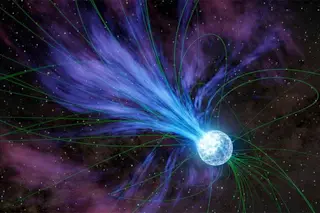When Albert Einstein listed the most important honors of his life, he began with the German Physical Society's Max Planck Medal, named for a physicist he revered. He went on from there to list the prizes and honorary doctorate degrees awarded him in many nations. Conspicuously absent was the plaudit with the highest profile and payout: the Nobel Prize. But in context this omission isn't so surprising. The Nobel nod—17 years after Einstein published his special theory of relativity—came long after recognition by the physics world and even the general public. Even more bizarre, the prize was awarded to Einstein not for his relativity revolution, but for the comparatively obscure discovery of the photoelectric effect. Why? After years of sifting through letters and diaries of the Scandinavian archives, science historian Robert Marc Friedman says it was an intentional snub fueled by the biases of the day—a prejudice against pacifists, Jews, ...
Einstein vs. the Nobel Prize
Why the Nobel Committee repeatedly dissed this "world-bluffing Jewish physicist"
More on Discover
Stay Curious
SubscribeTo The Magazine
Save up to 40% off the cover price when you subscribe to Discover magazine.
Subscribe













